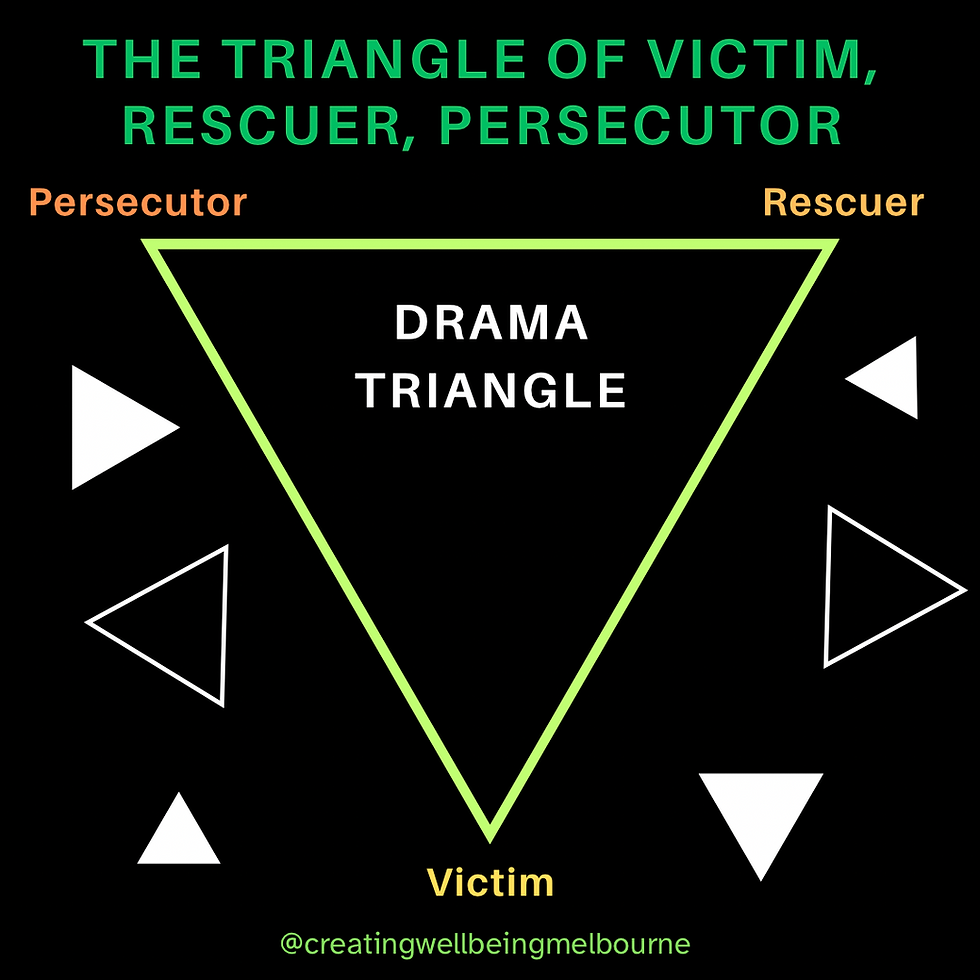Drama Triangle and Empowerment Triangle
- Rae Sabine

- May 24, 2025
- 1 min read
Conflicts and power dynamics are inherent in human interactions. For decades, practioners have used frameworks like the Drama Triangle and Empowerment Triangle to help understand and address these issues. These models reveal people’s roles in conflicts and suggest strategies for healthier relationships and personal empowerment.
DRAMA TRIANGLE
Victim: Feels powerless and blames life circumstances, avoiding personal responsibility or their life.
Rescuer: Protects others from harm, offering temporary relief that fosters dependency and self-resentment.
Persecutor: Believes in winning at all costs and controls others through blame, criticism, and oppression.
EMPOWERMENT TRIANGLE
Creator: Priorities vision and outcomes, fully accountable for taking action to achieve them.
Coach: Encourages others by asking questions, helping them find clarity in their thoughts and lives.
Challenger: Stimulates learning by questioning assumptions and stating facts, emphasising accountability.
If you recognise that you or someone you know is engaged in the Drama Triangle and wish to consciously disengage, collaborating with a therapist can be extremely beneficial in effectively navigating conflicts and personal development. Additionally, it is essential to practice self-compassion throughout this process, as making changes can be challenging.
Drama Triangle and Empowerment Triangle from Rae Sabine






Comments